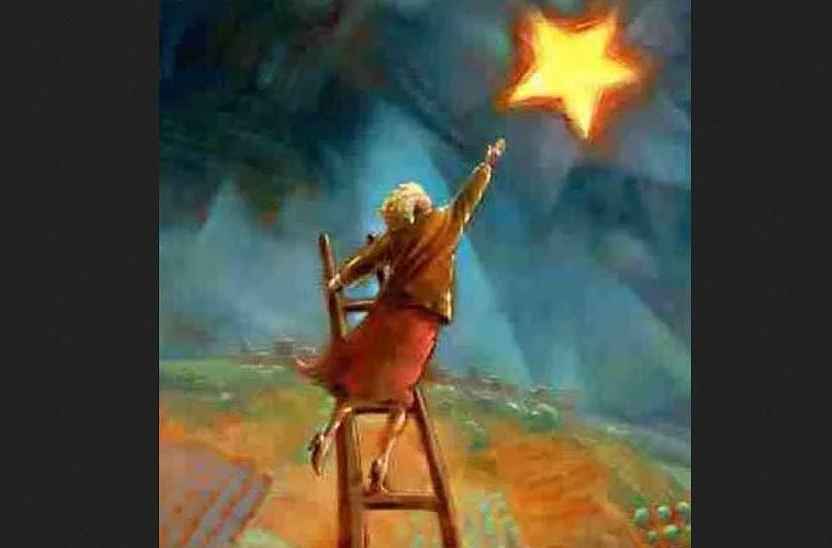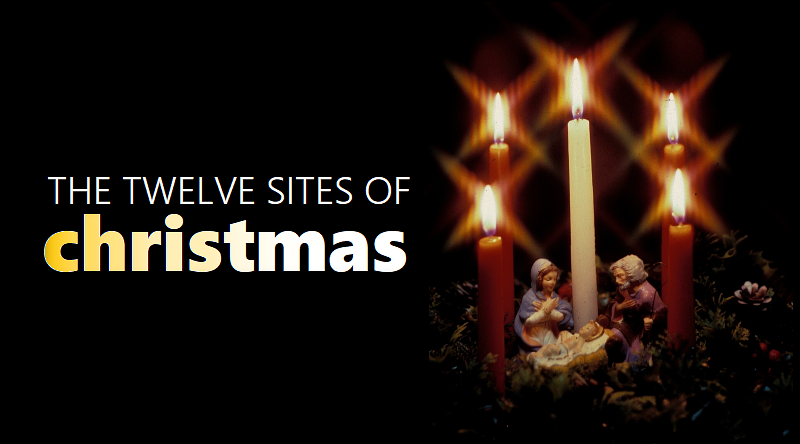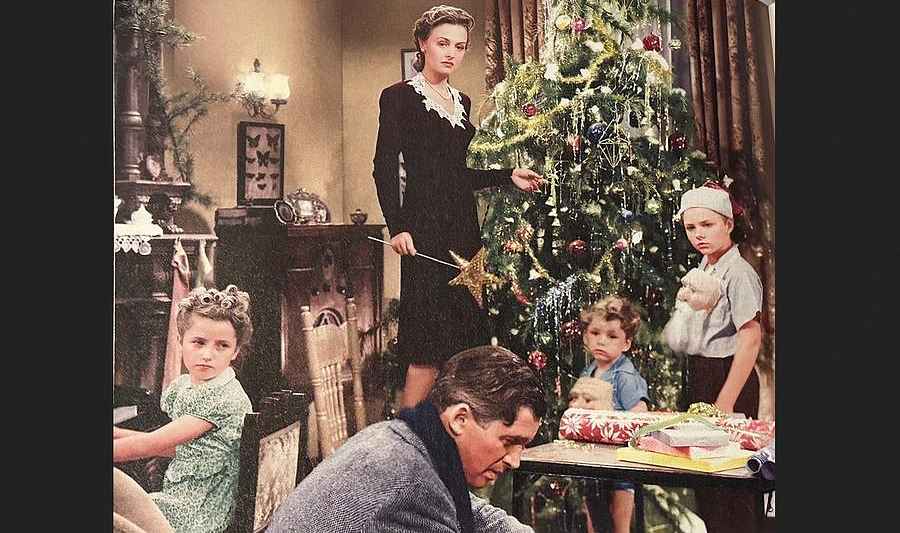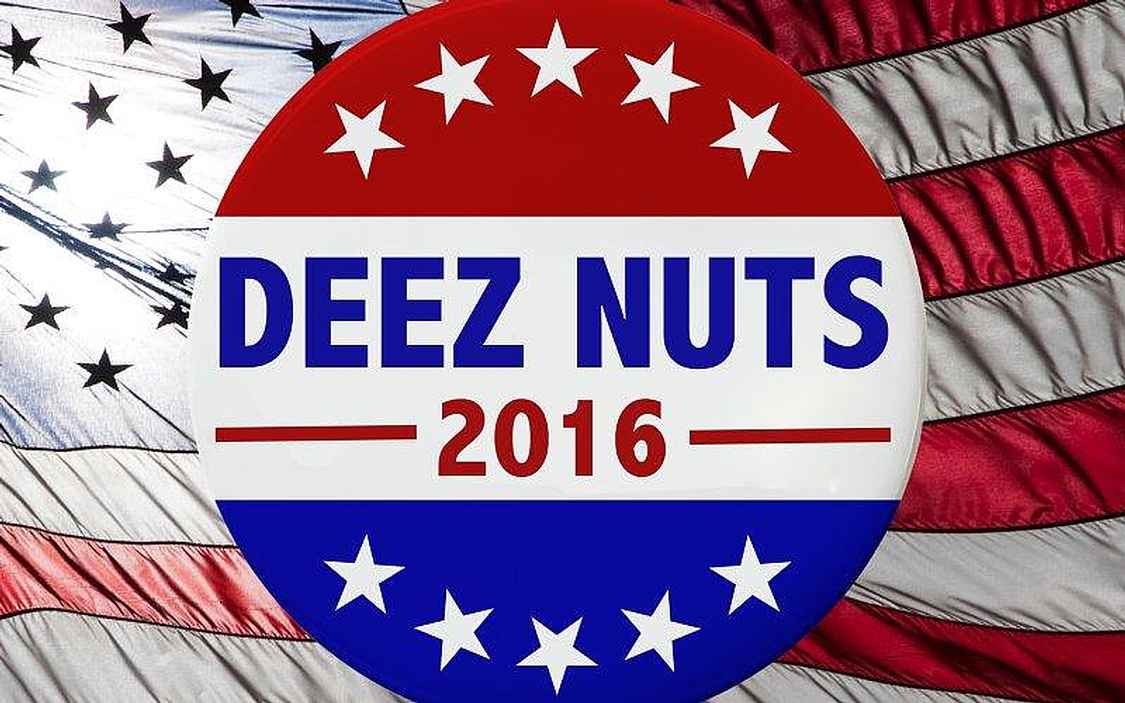






See listing of Recent and Most Popular articles on the Home Page
My World
Category: News & Current Events / Topics: Government • Media • Popular Culture • Research
Would You Vote for Deez Nuts?
Iowa farm boy scores big in poll
by Stu Johnson
Posted: August 21, 2015
The wacky, but worrisome, relationship between politics, polling, and media…
This article was originally posted as an entry on Stu Johnson's InfoMatters blog on the SJAssociates website
Would you vote for Deez Nuts for president? Do you even know who he is? In a poll in North Carolina by Public Policy Polling, the Iowa candidate did better than many in the crowded pack of Republican presidential contenders. The problem is, Deez Nuts is the invention of a 15-year-old Iowa farm boy.
I heard about this story yesterday and decided to track it down. That led to a host of articles and links showing the foibles of American politic, public opinion polling anf the content-hungry media (especially cable and internet). It would be absolutely hilarious if it didn’t expose a more troubling subtext. Here are just a few of the stories I found, each with many more links that will carry you even deeper into this fascinating subject.
On August 20, Jake Anderson of AntiMedia wrote about “Deez Nuts is Now Polling Higher than Most Republican Presidential Candidates”
Deez Nuts does not actually exist, of course. However, Brady Olsen, the 15-year-old boy who filed the name with the FEC, is real — and nearly 1 out of 10 Tar Heel State voters would vote for his fictitious candidate over both Hillary Clinton and Donald Trump. Added to his recent 8% polling in Minnesota and 7% in Iowa, Deez Nuts is now “the most successful independent candidate for president in two decades,” according to The Guardian. . . . .
Note that the headline here surrounded a question asked by PPP that specifally pitted Hillary Clinton, Donald Trump, and Deez Nuts as a representative Indendent. (See the comment by PPP's Jim Williams in a another excerpt below). However, the Nuts phenomenon goes beyond this one question. Anderson goes on to talk about the long history of fictitous candidates.
Satirical candidates are nothing new to the political system. In fact, the candidate “Nobody” has actually run in every presidential election since 1964, when journalist Arthur Hoppe created the farcical character to lampoon the two-party system. Various comedians and activistshave since taken up the cause, helping to buoy the subversive cultural meme to a respectable 100,000+ following on Facebook.
Other notable satirical candidacies include Vermin Supreme, Pigasus the Immortal, the Michael Moore-created potted plant Ficus, and, most recently, Stephen Colbert.
It is worth noting, however, that these previous satirical candidates never polled anywhere near 9%. . . .
In “Presidential Sensation Deez Nuts is a 15-Year-Old Iowa Farm Boy“ The Daily Beast (August 19) reported that
According to a Federal Election Commission filing, the Deez Nuts running for president lives at 2248 450th Avenue in Wallingford, Iowa. The problem, however, is that there is no Deez Nuts who lives in Wallingford, Iowa—a tiny town of 197 people—according to the Emmet County recorder’s office.
The Guardian article referenced by Anderson, “Donald Trump beware: apprentice Deez Nuts is top-polling independent,” also published August 20, said this about Nuts and the huge field of registered candidates:
The Guardian has also seen Olson’s passport, spoken to him on the phone and confirmed his identity with his parents.
“I’ve told my family and some of my friends from school,” he said. “They still think it’s hilarious.”
There are 585 registered candidates for president in 2016, including Sydneys Voluptuous Buttocks (independent), President Emperor Caesar (Democrat), Buddy The Cat (Democrat), Crawfish Crawfish (other), Bailey D Dog (independent), Buddy The Elf (write-in) and Lindsey Graham (Republican), none of whom – unlike Deez Nuts – received any support whatsoever in PPP’s North Carolina poll.. . .
Jim Williams, a polling analyst at PPP, who conducted the North Carolina poll, said that he thought the success of Deez Nuts represented a hunger for voters looking for an alternative to the two main parties. “You could call [the third party candidate] anything,” he said, “and they would get their 7% or 8%.”
He said that PPP had included Nuts in their polling questions at first “for our own amusement and interest”.
On another question, while 81% in the North Carolina poll were not sure whether they had a favorable or unfavorable opinion of Deez Nuts, 6% were favorable and 13% unfavorable. Were the 19% who did respond fooled by this fictitious candidate? Did they feel an obligation to provide an answer? Were they overwhelmed by the number of questions asked (the Daily Beast story shows it as Question 31)? Or were some of them having fun with the poll? I suspect it’s a mix of “all of the above.”
Earlier in the year, in “The Case against Dumb, Click-Bait Polls,” Daily Beast contributor Asawin Suebaeng, complained about a Reuters/Ipsos poll that compared President Obama’s approval rating against several television presidents (Joshua Bartlet from West Wing, Frank Underwood from House of Cards, David Palmer from 24, Laura Roslin from Battlestar Galactica, and Fitzgerald Grant from Scandal.
Suebang thought the poll was a waste of resources on the part of Retuers. Yet, he did acknowledge the role of media in forming public opinion: “Dennis Haysbert, who played the tough, African-American Democratic commander-in-chief Palmer, has argued that his character actually helped lay the groundwork for public acceptance of a black president in real-world USA.” The Mother Jones article in which Haysbert was quoted was also written by Suebaeng. It highlighted 15 celebrity campaign donors/activists in the 2012 election cycle.
Suebaeng suggests:
These characters are fictional, and even the morally ambiguous or Machiavellian ones are written to be sympathetic or alluring for the sake of compelling TV. This is about as instructive as polling the American people about who is the superior leader: Barack Obama, Santa Claus, or the cutest Ewok from the Star Wars franchise.
That position, however, assumes that people make a clear distinction between reality and fiction. I would argue, however, that popular culture plays a tremendous part in how we view the world. There have always been chronic know-nothings, and story-telling has long been a tool for coping with life (i.e., the success of radio “soap operas,” whose plots pale in comparison to the dysfunctional lives portrayed today in both drama and reality television).
The trend has intensified, with civics replaced by pop culture as the fount of knowledge about how government/civil society operate and affect our daily lives. Sadly, many people seem more engaged in and knowledgeable about the lives of celebrities and the virtual worlds they inhabit than they are about current events and the real world we actually live in.
Jake Anderson concluded his AntiMedia piece with this comment:
When a 15-year-old boy can manufacture a crudely named character that garners higher poll numbers than several career politicians, including a former two-term governor, one might concede that faith in elected officials—and perhaps representative democracy itself-is at an all-time low.
It is not just politics and government that are suffering. In an earlier blog, “Who Do You Trust?” I mentioned how Gallup surveys have shown a steady decline in the confidence people have in major institutions. Religion has declined from first place in 1973, when two thirds of adults expressed confidence, to fourth place and barely 50% confidence in 2012. Public schools, banks, television news and most other institutions once regarded with high levels of confidence have all suffered.
The erosion of trust in politics and the media corrupts the watchdog role that was intended when the First Amendment guaranteed freedom of the press. Now more than ever, we have a truly murky amalgam of politics, polling, and the media. It’s still a long way to the 2016 election!
NOTES:
This blog follows a series of others dealing with the broad topics of politics, polling, the media and trust:
- Driven by Polls—Reporting or making news? – April 8
- Who, Me, Biased?—A matter of perspective – April 20
- Who Do You Trust?—Striving to be honest and trustworthy – May 12
- Polling the First GOP Debates—Looking under the hood at the NBC.SurveyMonkey survey – August 11
Search all articles by Stu Johnson
Stu Johnson is principal of Stuart Johnson & Associates, a communications consultancy in Wheaton, Illinois. He is publisher and editor of SeniorLifestyle, writes the InfoMatters blog on his own website and contributes articles for SeniorLifestyle. • Author bio (website*) • E-mail the author (moc.setaicossajs@uts*) • Author's website (personal or primary**)* For web-based email, you may need to copy and paste the address yourself.
** opens in a new tab or window. Close it to return here.
Posted: August 21, 2015 Accessed 441 times
![]() Go to the list of most recent My World Articles
Go to the list of most recent My World Articles
![]() Search My World (You can expand the search to the entire site)
Search My World (You can expand the search to the entire site)
![]() Go to the list of Most Recent and Most Popular Articles across the site (Home Page)
Go to the list of Most Recent and Most Popular Articles across the site (Home Page)
 Loading requested view...
Loading requested view...